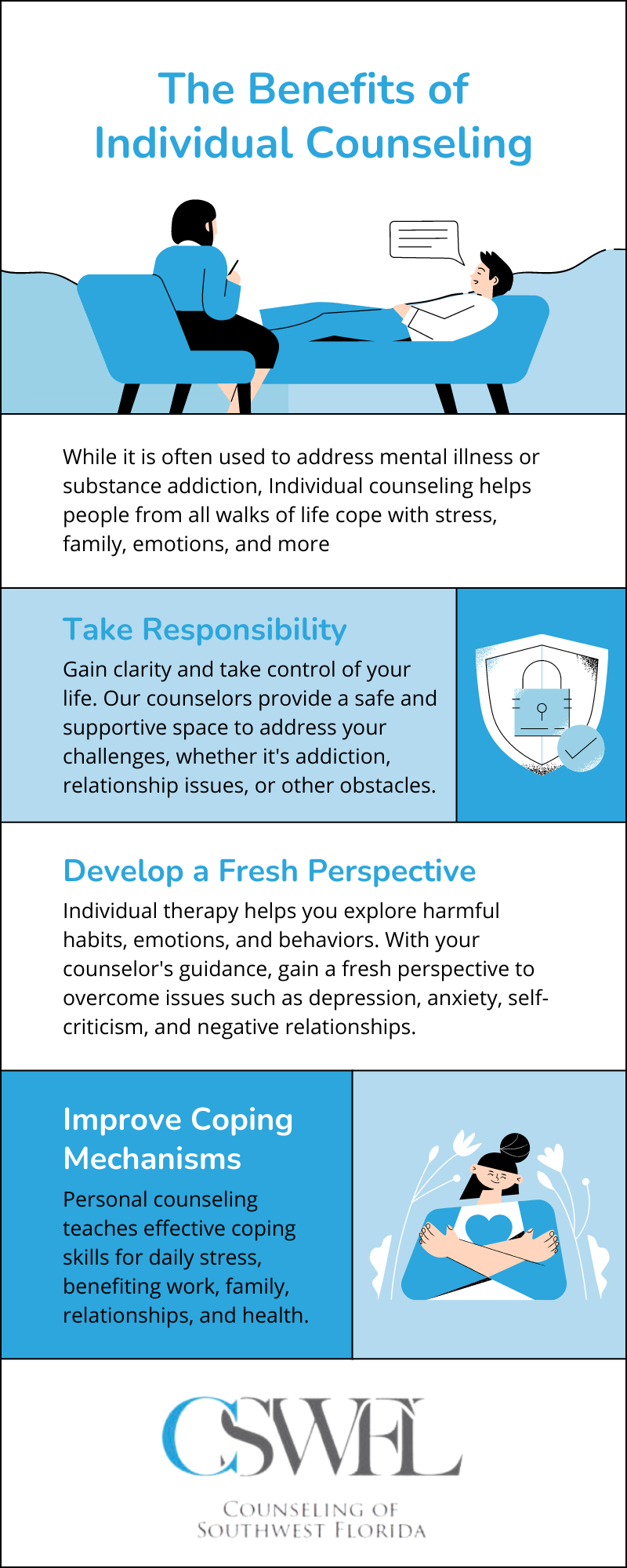Normalizing therapy: how Individual Therapy Toronto transforms young lives
Exploring the Benefits of Psychological Treatment for Adolescent Well-Being and Growth
Psychological treatment plays a pivotal role in the wellness and development of young adults. Adolescence is a tumultuous period noted by social and psychological challenges. Therapy uses an organized setting for teens to articulate their feelings and confront their struggles. It furnishes them with necessary devices for strength and interaction. As they browse this developmental stage, the impact of therapy can be profound. What particular benefits can emerge from such support during these formative years?

Comprehending the Teen Mind: Stress and challenges
As adolescents navigate the complexities of their developmental stage, they deal with many difficulties and stress that can substantially influence their psychological wellness. This duration is noted by significant physical, psychological, and social changes, which can induce sensations of complication and unpredictability. Peer impact intensifies, frequently resulting in a struggle for acceptance and identity. Academic assumptions can develop added stress and anxiety, as the stress to succeed installs in a progressively competitive atmosphere.
Furthermore, the introduction of social media presents a brand-new layer of intricacy, where comparisons to curated online identities can worsen feelings of inadequacy and anxiousness. These elements can lead to psychological distress, including anxiety, clinical depression, and reduced self-esteem. Recognizing these obstacles is essential for moms and dads, educators, and psychological health and wellness professionals, as it gives understanding into the teenage experience and highlights the need for encouraging interventions to foster durability and well-being throughout this vital developing phase.
Creating a Safe Area for Expression
Creating a risk-free space for expression is necessary for adolescents steering their tumultuous developing stage. In restorative settings, this atmosphere cultivates open dialogue, permitting teens to interact their sensations without worry of judgment. Such rooms enable them to discover their ideas and emotions, which is crucial for understanding their identities and experiences.
When teens feel safe, they are most likely to share their battles, consisting of anxiety, anxiety, or social conflicts. This open communication can cause much deeper insights and help with individual development.
Moreover, a risk-free room urges creativity and self-reflection, providing teens the liberty to express themselves through different electrical outlets, such as art or writing. Establishing depend on in between the specialist and the teenage is critical, as it underpins the effectiveness of the therapeutic process. Eventually, producing a risk-free area for expression acts as a structure for emotional healing and personal development during these formative years.
Developing Coping Strategies and Resilience

Therapists commonly present strategies such as mindfulness, journaling, and analytical skills, enabling teens to handle their reactions much more efficiently. Additionally, by involving in role-play situations, they practice how to take care of tight spots, strengthening their confidence. With time, these skills foster a feeling of company, equipping young adults with the tools to navigate life's unpredictabilities. The advancement of resilience not just aids in overcoming instant challenges yet likewise prepares for much healthier emotional feedbacks in their adult years, ultimately adding to lifelong health.
Enhancing Communication Abilities
Effective interaction skills are crucial for teens as they browse complicated social landscapes. Psychological therapy plays a vital role in boosting these skills, permitting adolescents to reveal their ideas and emotions a lot more plainly. Through assisted sessions, therapists motivate teenagers to articulate their sensations, facilitating much better understanding in peer communications and family dynamics.
Therapy offers a risk-free room for practicing active listening, empathy, and assertiveness. These abilities encourage teenagers to take part in significant discussions, willpower conflicts, and build stronger connections. As they find out to connect effectively, they likewise get self-confidence in their capacity to support for themselves and their needs.
Additionally, enhanced communication skills add to psychological knowledge, permitting teenagers to identify and react to the feelings of others. This all read natural growth cultivates a supportive environment, ultimately promoting overall well-being and social integration. Via psychological treatment, young adults can grow these crucial abilities for a much healthier social experience.
Promoting Individual Growth and Self-Discovery
Promoting personal growth and self-discovery in teenagers entails a complex approach that encourages understanding of individual identification. This procedure likewise emphasizes the importance of structure strength abilities and improving emotional awareness. With each other, these aspects create a structure for much healthier, much more confident people as they browse their formative years.
Understanding Individuality
How do teenagers navigate the complex landscape of individuality as they endeavor for self-discovery and development? During this formative duration, they come to grips with various impacts, including peers, family, and social expectations. Psychological therapy can function as a crucial device, providing a secure area for expedition and reflection. Through assisted conversations, young adults can verbalize their ideas and feelings, permitting them to comprehend their needs, beliefs, and worths. This process promotes a much deeper understanding of their one-of-a-kind identity, encouraging them to make informed options and create a sense of objective. As they participate in self-discovery, they discover to welcome their individuality and browse challenges with higher quality, ultimately improving their total well-being and personal development.
Structure Resilience Skills

Enhancing Emotional Awareness
Enhancing emotional recognition is crucial for young adults navigating the intricacies of adolescence, as it allows them to identify and comprehend their feelings better. By taking part in mental therapy, teenagers find out to identify their psychological reactions and the triggers behind them. This procedure promotes personal development and self-discovery, enabling them to articulate their feelings and manage challenges more adeptly. As teens develop emotional recognition, they cultivate empathy, boost connections, and enhance interaction abilities. Additionally, this enhanced awareness aids in decision-making, assisting them navigate social pressures and develop a feeling of identity. Ultimately, cultivating psychological awareness via therapy can lead to much healthier coping mechanisms and an extra balanced mood, essential for growing during these developmental years.
Building Healthy And Balanced Relationships and Support Equipments
While passing through the intricacies of adolescence, constructing healthy partnerships and support systems is crucial for teens. These links offer psychological stability and a sense of belonging, critical during this developing stage. Positive partnerships with peers, family, and advisors can enhance self-confidence and strength, enabling teens to browse challenges a lot more properly.
Mental therapy plays a crucial role in promoting these connections by outfitting adolescents with communication and conflict-resolution abilities. Via therapy, they learn to reveal their sensations, recognize various perspectives, and establish limits, which are essential for keeping healthy and balanced interactions.
Helpful networks motivate teens to look for assistance when required, minimizing seclusion and advertising psychological health. They are extra most likely to involve in useful habits and make notified decisions when adolescents feel connected to their assistance systems (Individual Teen Counselling). On the whole, the farming of healthy and balanced connections and support group is important in promoting adolescent health and individual growth
Regularly Asked Concerns
Just how Do I Discover a Qualified Specialist for My Teenager?
To locate a qualified therapist for a teen, one ought to look for suggestions from healthcare carriers, research study qualifications on the internet, examine evaluations, and ascertain the specialist specializes in teen issues, promoting a supportive atmosphere for development.
What Are the Expenses Related To Mental Treatment for Teenagers?
The expenses connected with mental treatment for teens vary extensively, generally varying from $50 to $250 per session. Insurance policy protection, gliding range fees, and regional sources can influence cost and accessibility for families seeking assistance.
Exactly How Often Should Teenagers Go To Treatment Procedure?
Teenagers ought to preferably participate in treatment sessions weekly or biweekly, depending upon specific demands. Consistent sessions can foster a risk-free area for expression, while permitting specialists to monitor progress and change methods properly over time.
Can Therapy Be Efficient for All Teens?
Therapy can be efficient for lots of teenagers, yet specific outcomes differ. Factors such as personal circumstances, openness to the process, and the therapeutic approach employed all influence its effectiveness for each adolescent.
What Should Parents Do During Their Teenager's Treatment Refine?
Moms and dads must proactively sustain their teen's therapy process by maintaining open communication, valuing discretion, participating in sessions if welcomed, and motivating their kid's efforts (Individual Therapy For Teens). Comprehending and persistence are vital as teens browse their individual growth journey
Psychological treatment plays an essential function in the well-being and development of teens. By engaging in mental treatment, teenagers learn to identify their psychological reactions and the triggers behind them. Mental treatment plays an essential role in cultivating these connections by gearing up adolescents with interaction and conflict-resolution skills. Teenagers must ideally participate in treatment sessions weekly or biweekly, depending on specific requirements. Moms and dads must actively sustain their teenager's treatment process by keeping open communication, respecting privacy, attending sessions if welcomed, and encouraging their youngster's efforts.